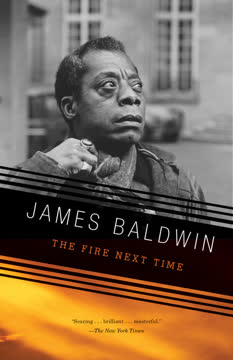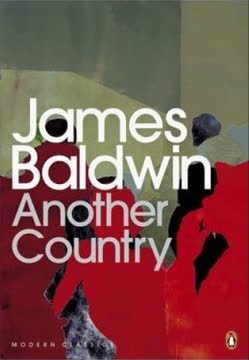Key Takeaways
1. The American identity crisis: Navigating race, expatriation, and self-discovery
"I am talking about those who are left, and I am talking principally about the young. What are they doing?"
Identity and alienation: Baldwin explores the complex nature of American identity, particularly for African Americans. He highlights the struggle to find one's place in a society that often rejects or misunderstands them.
Expatriation as a lens: Through his experiences in Paris and other European cities, Baldwin gains a new perspective on American race relations and his own identity. This distance allows him to critically examine both his home country and himself.
Self-discovery through contrast: By encountering different cultures and attitudes towards race, Baldwin and other expatriate writers are forced to confront their own assumptions and beliefs about identity, leading to profound personal growth and insight.
2. The complexity of black-white relationships in mid-20th century America
"The relationship, therefore, of a black boy to a white boy is a very complex thing."
Historical context: Baldwin examines the deep-rooted tensions and power dynamics between black and white Americans, shaped by centuries of slavery, segregation, and systemic racism.
Personal experiences: Through his relationships with white writers like Norman Mailer, Baldwin illustrates the nuanced and often fraught interactions between black and white intellectuals.
Mutual misunderstanding: Baldwin highlights how both black and white Americans often fail to truly understand each other's experiences and perspectives, leading to ongoing conflicts and misinterpretations.
3. The power and limitations of protest literature in addressing racial issues
"Everybody's Protest Novel."
Critique of simplistic narratives: Baldwin challenges the effectiveness of protest literature that relies on stereotypes or oversimplification of racial issues.
Need for nuance: He argues for a more complex and honest portrayal of the black experience in literature, one that acknowledges both the struggles and the humanity of African Americans.
Personal conflict: Baldwin's criticism of protest literature, including works by Richard Wright, creates tension within the black literary community and forces a reevaluation of the role of art in addressing social issues.
4. The struggle for authenticity and recognition among black writers
"I was then (and I have not changed much) a very tight, tense, lean, abnormally ambitious, abnormally intelligent, and hungry black cat."
Pressure to conform: Baldwin describes the challenges faced by black writers in gaining recognition while maintaining their authentic voice and perspective.
Balancing act: He explores the tension between writing for a predominantly white audience and staying true to the black experience.
Competition and camaraderie: Baldwin's relationships with other black writers reveal both a sense of solidarity and a fierce competition for limited opportunities and recognition.
5. The impact of expatriation on African American writers and their perspectives
"It is still not possible to overstate the price a Negro pays to climb out of obscurity—for it is a particular price, involved with being a Negro."
Escape and perspective: Expatriation offers black writers like Baldwin a chance to escape the immediate pressures of American racism and gain new insights into their experiences.
Challenges abroad: Baldwin reveals that even in Europe, African Americans face unique challenges and prejudices, complicating the idea of expatriation as a simple solution.
Evolving identity: The experience of living abroad forces black expatriates to confront and redefine their identities as both Americans and African Americans.
6. The evolution of racial dynamics in America and its global implications
"The American Negro has paid a hidden, terrible price for his slow climbing to the light."
Changing landscape: Baldwin observes the shifting racial dynamics in America, from the Civil Rights Movement to the emergence of Black Power.
Global context: He connects American racial issues to broader global struggles against colonialism and oppression, particularly in Africa.
Future concerns: Baldwin anticipates the ongoing challenges and potential for progress in race relations, both in America and around the world.
7. The role of guilt, shame, and self-hatred in shaping racial identities
"One of the prices an American Negro pays—or can pay—for what is called his 'acceptance' is a profound, almost ineradicable self-hatred."
Internalized racism: Baldwin explores how systemic racism can lead to self-hatred and shame among African Americans.
White guilt: He also examines the role of guilt in shaping white Americans' attitudes and behaviors towards race.
Breaking the cycle: Baldwin advocates for confronting these painful emotions as a necessary step towards genuine understanding and reconciliation between races.
8. The search for cultural roots and the challenges of assimilation
"We are here to proclaim the right of our people to speak, to let our people, black people, make their entrance on the great stage of history."
Cultural pride: Baldwin emphasizes the importance of African Americans reconnecting with their cultural heritage and history.
Assimilation dilemma: He explores the tension between assimilating into mainstream American culture and maintaining a distinct black identity.
Global black consciousness: Baldwin connects the African American experience to the broader diaspora of people of African descent around the world.
9. The intersection of art, politics, and personal experience in black writing
"All art is a kind of confession, more or less oblique. All artists, if they are to survive, are forced, at last, to tell the whole story, to vomit the anguish up."
Art as testimony: Baldwin argues that authentic art, particularly for black writers, must draw from personal experiences and confront painful truths.
Political implications: He explores how the act of writing and creating art can be inherently political for African Americans.
Balancing act: Baldwin grapples with the challenge of creating art that is both personally meaningful and politically impactful.
10. The ongoing journey towards racial reconciliation and understanding
"The hope and the effect of this fusion in the breast of the American Negro is one of the few hopes we have of surviving the wilderness which lies before us now."
Cautious optimism: Despite the challenges, Baldwin maintains hope for progress in race relations and mutual understanding.
Personal responsibility: He emphasizes the need for both black and white Americans to confront their own biases and misconceptions.
Ongoing struggle: Baldwin acknowledges that the path to true racial reconciliation is long and difficult, requiring continuous effort and honest dialogue.
Last updated:
FAQ
What's "Nobody Knows My Name" about?
- Collection of Essays: "Nobody Knows My Name" is a collection of essays by James Baldwin, exploring themes of race, identity, and the role of the writer in society.
- Personal and Political Reflections: The essays reflect Baldwin's personal experiences and observations on race relations in America and abroad, particularly in the context of the civil rights movement.
- Cultural Critique: Baldwin critiques American culture and its treatment of African Americans, offering insights into the complexities of identity and belonging.
- Historical Context: The book provides a historical perspective on the struggles for racial equality during the 1950s and 1960s.
Why should I read "Nobody Knows My Name"?
- Insightful Analysis: Baldwin offers a profound analysis of race relations and the social dynamics of America, making it a crucial read for understanding historical and contemporary issues.
- Literary Excellence: Baldwin's eloquent prose and compelling arguments make the essays both engaging and thought-provoking.
- Cultural Relevance: The themes explored in the book remain relevant today, offering valuable perspectives on ongoing discussions about race and identity.
- Personal Narratives: Baldwin's personal experiences add depth and authenticity to his critiques, providing a unique viewpoint on the African American experience.
What are the key takeaways of "Nobody Knows My Name"?
- Race and Identity: Baldwin delves into the complexities of racial identity and the impact of systemic racism on individuals and communities.
- Role of the Writer: He discusses the responsibility of writers to confront social injustices and reflect the truth of their times.
- Cultural Critique: Baldwin critiques both American and European societies, highlighting their failures in addressing racial inequalities.
- Personal Reflection: The essays reveal Baldwin's introspective journey as he navigates his identity as a black man and a writer.
How does James Baldwin address race relations in "Nobody Knows My Name"?
- Historical Context: Baldwin places race relations within the historical context of the civil rights movement, examining the progress and setbacks of the era.
- Personal Experiences: He shares personal anecdotes that illustrate the pervasive nature of racism and its impact on his life and work.
- Critique of Society: Baldwin critiques both the overt and subtle forms of racism in American society, challenging readers to confront uncomfortable truths.
- Call for Change: He advocates for a deeper understanding and transformation of societal attitudes towards race and equality.
What is Baldwin's perspective on the role of the writer in society?
- Truth-Telling: Baldwin believes that writers have a duty to tell the truth about the world, even when it is uncomfortable or unpopular.
- Social Responsibility: He argues that writers should use their platform to address social injustices and advocate for change.
- Personal Reflection: Baldwin emphasizes the importance of self-examination and honesty in a writer's work, as a means to connect with readers.
- Cultural Critique: He sees writers as cultural critics who can challenge societal norms and inspire new ways of thinking.
How does Baldwin's personal experience influence his writing in "Nobody Knows My Name"?
- Authentic Voice: Baldwin's personal experiences as a black man in America provide authenticity and depth to his essays.
- Emotional Insight: His reflections on his own struggles with identity and belonging offer emotional insight into the broader issues of race and society.
- Cultural Observations: Baldwin's travels and interactions with different cultures inform his critiques of both American and European societies.
- Introspective Journey: The essays reveal Baldwin's introspective journey, as he grapples with his identity and the role of the writer.
What are the best quotes from "Nobody Knows My Name" and what do they mean?
- "The questions which one asks oneself begin, at last, to illuminate the world, and become one’s key to the experience of others." This quote emphasizes the importance of self-reflection in understanding the world and connecting with others.
- "The world is before you and you need not take it or leave it as it was when you came in." Baldwin encourages readers to challenge the status quo and strive for change.
- "It is a terrible, an inexorable, law that one cannot deny the humanity of another without diminishing one’s own." This quote highlights the interconnectedness of humanity and the moral imperative to recognize each other's humanity.
- "The interior life is a real life, and the intangible dreams of people have a tangible effect on the world." Baldwin underscores the significance of personal dreams and aspirations in shaping the world.
How does Baldwin critique American culture in "Nobody Knows My Name"?
- Racial Inequality: Baldwin critiques the systemic racism embedded in American culture and its impact on African Americans.
- Cultural Myths: He challenges the myths of American exceptionalism and the notion of a post-racial society.
- Social Hypocrisy: Baldwin exposes the hypocrisy of American values, particularly in relation to freedom and equality.
- Call for Introspection: He urges Americans to confront their history and the realities of racial injustice to create a more equitable society.
What is Baldwin's view on the relationship between America and Europe?
- Cultural Exchange: Baldwin explores the cultural exchange between America and Europe, particularly in the context of race and identity.
- European Perspective: He examines how European societies perceive race and how this differs from the American experience.
- Expatriate Experience: Baldwin reflects on his own experiences as an expatriate in Europe and how it shaped his understanding of race and identity.
- Critique of Colonialism: He critiques European colonialism and its lasting impact on global race relations.
How does Baldwin address the concept of identity in "Nobody Knows My Name"?
- Complex Identity: Baldwin explores the complexities of identity, particularly for African Americans navigating a racially divided society.
- Personal Reflection: He reflects on his own identity as a black man and a writer, and how it influences his work and worldview.
- Cultural Influence: Baldwin examines how culture and society shape individual identity and the struggle for self-definition.
- Universal Themes: He connects personal identity to broader themes of humanity and the search for meaning and belonging.
What is the significance of the title "Nobody Knows My Name"?
- Anonymity and Identity: The title reflects the struggle for recognition and identity faced by African Americans in a society that often renders them invisible.
- Personal Journey: It signifies Baldwin's personal journey to define himself and his place in the world, amidst societal pressures and expectations.
- Universal Struggle: The title suggests a universal struggle for identity and belonging, transcending race and culture.
- Cultural Critique: It serves as a critique of a society that fails to acknowledge the individuality and humanity of marginalized groups.
How does "Nobody Knows My Name" relate to Baldwin's other works?
- Thematic Continuity: The essays in "Nobody Knows My Name" continue Baldwin's exploration of race, identity, and the role of the writer, themes present in his other works like "Go Tell It on the Mountain" and "The Fire Next Time."
- Personal Reflection: Like his other works, this book includes personal reflections that provide insight into Baldwin's life and experiences.
- Cultural Critique: Baldwin's critique of American culture and race relations is a consistent theme across his body of work.
- Literary Style: The book showcases Baldwin's eloquent prose and ability to convey complex ideas with clarity and emotional depth, a hallmark of his writing style.
Review Summary
Nobody Knows My Name is a powerful collection of essays by James Baldwin exploring race, identity, and American society in the 1950s and 60s. Readers praise Baldwin's eloquent and insightful writing, noting its continued relevance today. The essays cover topics like desegregation, literary criticism, and Baldwin's experiences in the American South and Paris. Many reviewers highlight the author's ability to blend personal reflection with social commentary, creating a deeply moving and thought-provoking work. The book is widely regarded as a masterpiece of cultural criticism and a crucial text for understanding American race relations.
Download PDF
Download EPUB
.epub digital book format is ideal for reading ebooks on phones, tablets, and e-readers.









